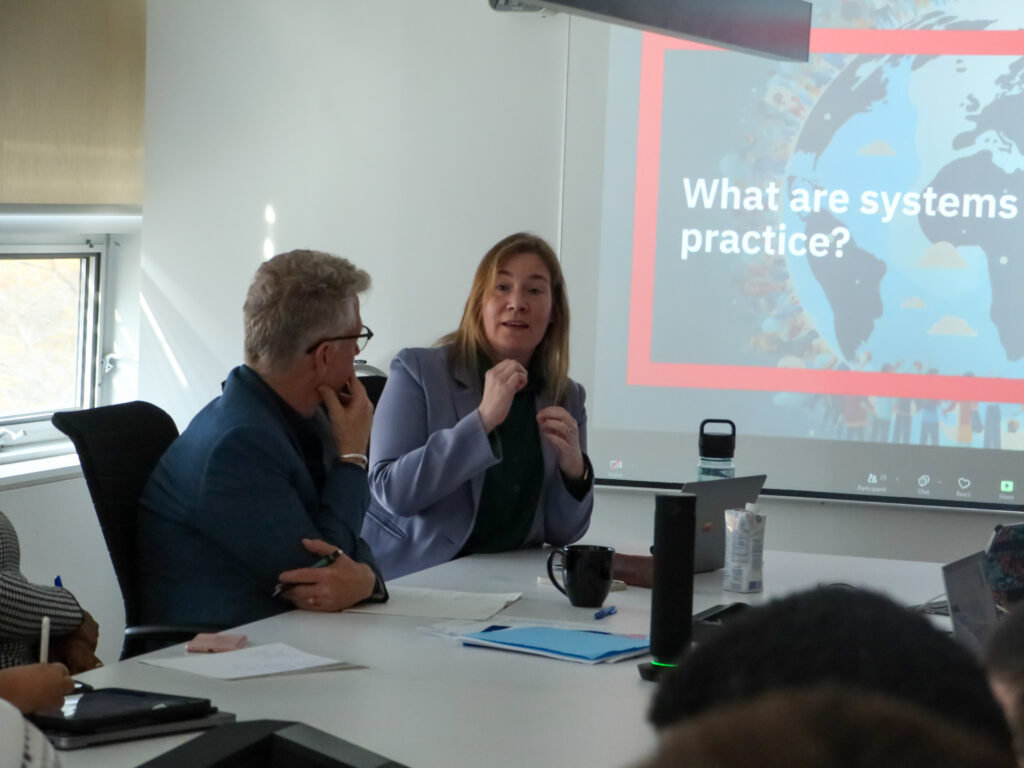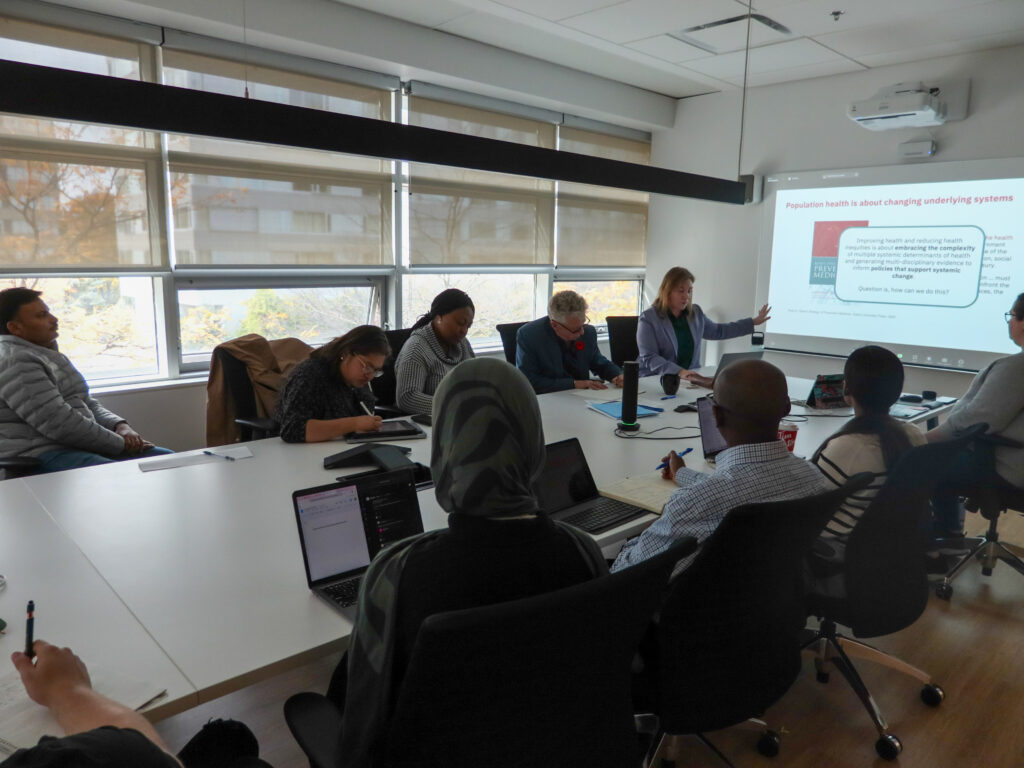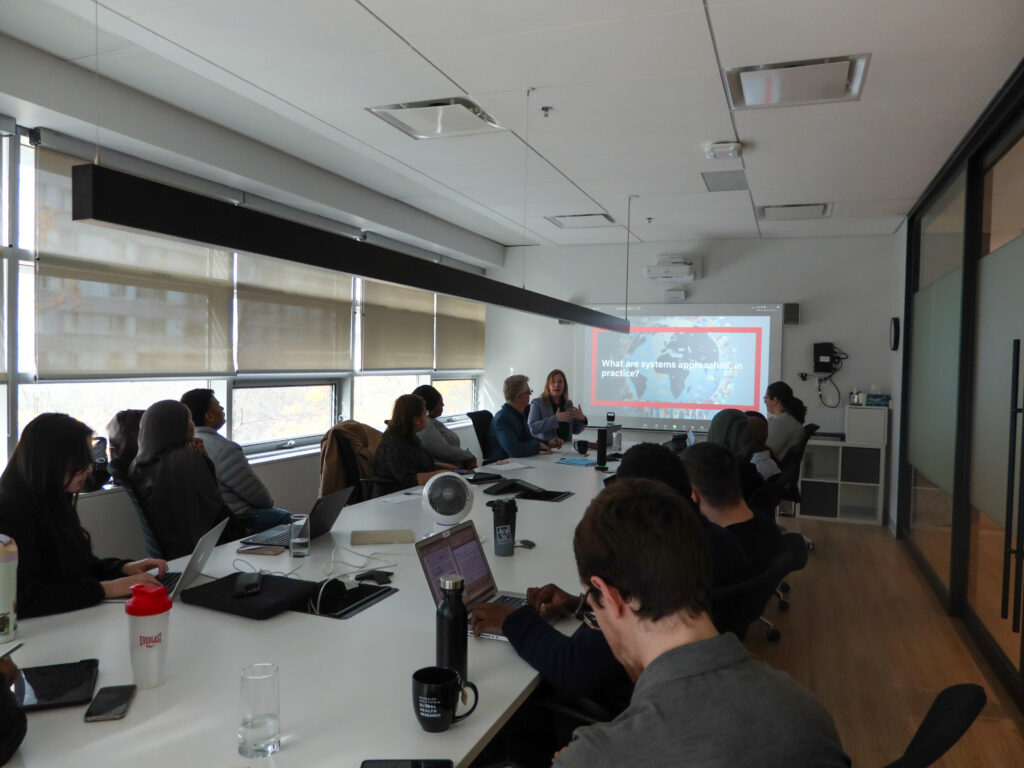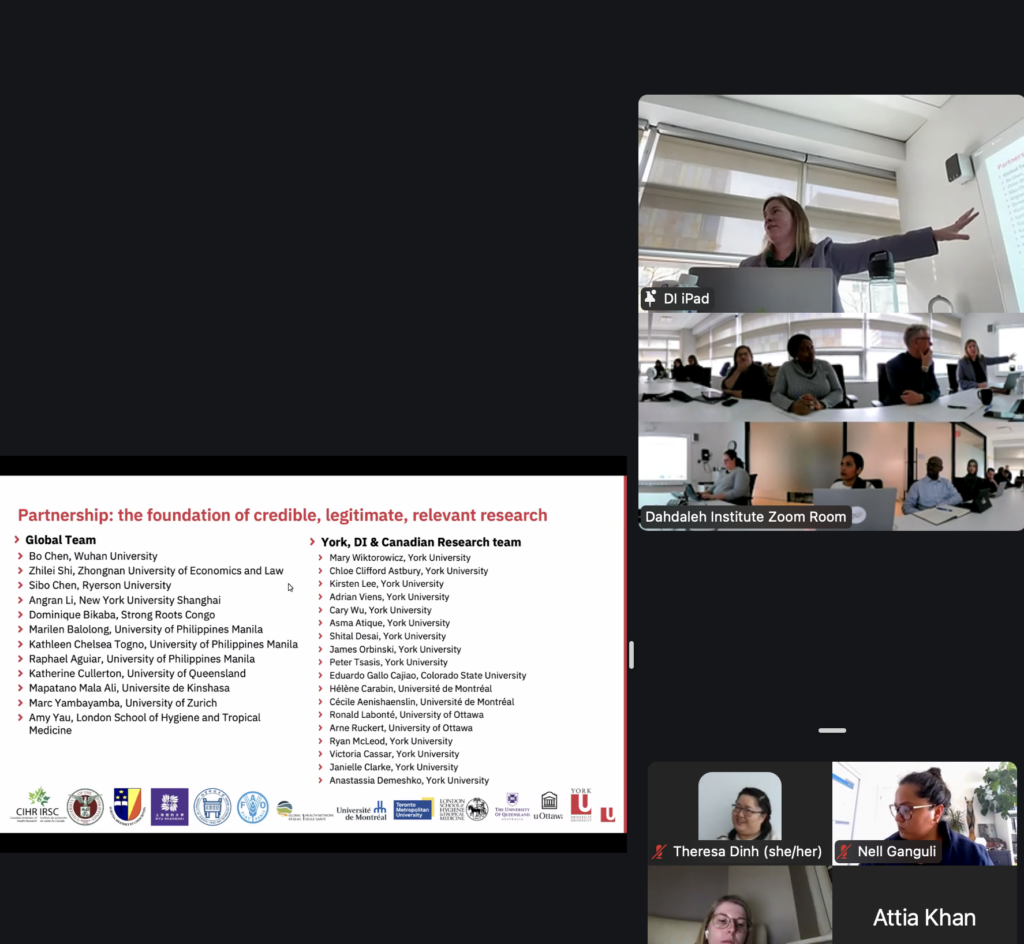Post
Published on November 13, 2024

On October 30, Dahdaleh faculty fellow Dr. Tarra Penney presented on systems-based approach and how it can transform traditional methods of public health intervention. Her work seeks to address complex global health challenges by understanding and influencing the structures and forces that drive health outcomes, rather than focusing solely on isolated risk factors.
She explained that traditional epidemiology often prioritizes identifying and managing high-risk individuals. However, her approach aligns more closely with shifting entire population risk distributions through broad, structural and policy level changes. This strategy, inspired by the work of Jeffrey Rose, underlines the importance of recognizing that many determinants of health lie outside healthcare systems, such as in economic, social and environmental policies. Her philosophy emphasizes addressing “the causes of the causes” of health issues, which necessitates a complex and multidisciplinary approach.
Dr. Penney introduced systems thinking as a method of understanding these complexities. Using metaphors like an iceberg, she described how observable health events are influenced by deeper systemic factors, such as patterns, structures, and underlying mental models. Systems thinking, she argued, involves recognizing these interconnections and using specialized methods to map and influence them. She highlighted tools like concept mapping, network analysis, agent-based modeling and causal loop diagrams to illustrate how systems can be analyzed and better understood.




A significant part of her seminar covered case studies demonstrating the practical application of these methods. For example, she and her colleagues investigated global wildlife trade governance to understand how organizational structures and power dynamics impact policy effectiveness. Another example involved mapping unintended consequences of wildlife policies across different countries, using causal loop diagrams to detect recurring systemic issues, such as “fixes that fail” where interventions produce counterproductive long-term outcomes.
Dr. Penney concluded by discussing the importance of making research actionable. She emphasized the need for credible, legitimate and relevant evidence that is designed to be impactful and usable in policy contexts. Partnerships with organizations like the World Health Organization and collaboration with diverse disciplines help position research to influence policy effectively, ensuring that insights from systems thinking translate into meaningful, real world health improvements.
Watch the seminar presentation below: https://www.youtube.com/watch?v=kmC6wYxs8JU
Connect with Tarra Penney.
Themes | Global Health & Humanitarianism |
Status | Active |
Related Work |
N/A
|
Updates |
N/A
|
People |
You may also be interested in…
Groundbreaking global health simulation slated for May
Written by Elaine Smith Students will be immersed in an unparalleled learning experience on May 1 and 2 as York University’s School of Global Health unveils an innovative global health simulation event designed for Faculty …Read more about this Post
Recap – Integration and Public Awareness of One Health as an Integrated and Unifying Strategy
On October 25, 2023, Dahdaleh faculty fellow and Professor Cary Wu delved into the multi-faceted concept of One Health. Professor Wu explained the theoretical, methodological, and practical dimensions of One Health. He emphasized its integrative …Read more about this Post
Dahdaleh Institute researchers contribute to York’s achievements towards the United Nation’s 17 Sustainable Development Goals
In June 2020, York University launched its new University Academic Plan 2020-2025 (UAP), which included a university-wide challenge to elevate York’s contributions to the United Nation’s 17 Sustainable Development Goals (SDGs). The new UAP serves as …Read more about this Post
